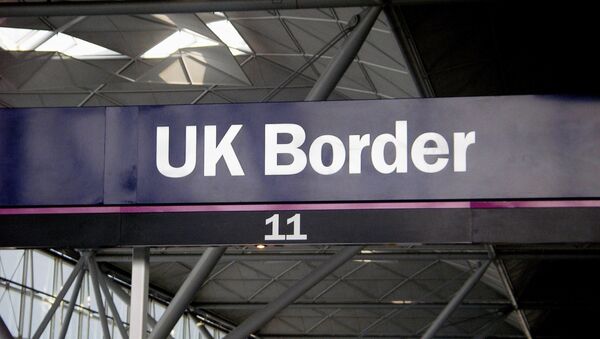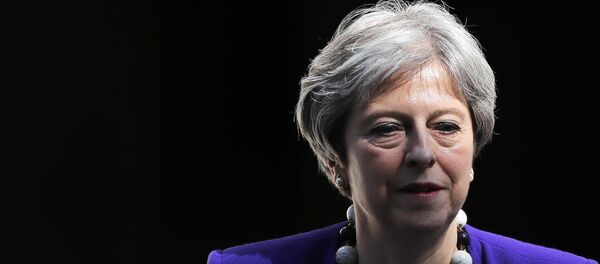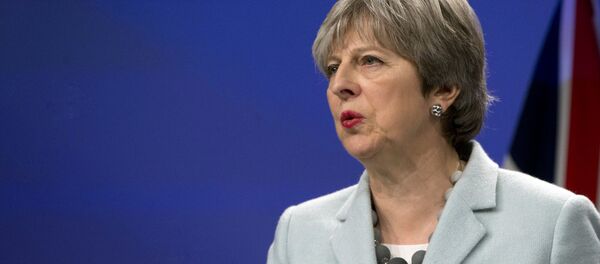Theresa May said that the UK would leave the EU customs union in 2020, when the Brexit transition period ends, pointing out that work on customs arrangements with the EU currently remains a priority, the prime minister's spokesperson told reporters.
READ MORE: UK Gov't Will Go Down if Inks Customs Deal With EU – MPs
He also noted that there were some unresolved issues concerning the future customs options after the meeting of the cabinet's Brexit subcommittee was held last week, referring to the fact that May delayed her final decision on the matter after some pro-Brexit ministers raised their concern over her proposal on a "customs partnership."
Theresa May has been recently criticized by a group of pro-Brexit Conservative lawmakers, who sent a letter to the prime minister, arguing that the "customs partnership" is "undeliverable in operational terms and would require a degree of regulatory alignment that would make the execution of an independent trade policy a practical impossibility." At the cabinet's Brexit subcommittee meeting on May 2, the Brexiteers urged May to abandon her preferred option of a customs partnership, which, according to critics, could tie the UK to EU rules.
READ MORE: UK Gov't Heading for 'Brick Wall' Over Post-Brexit 'Customs Partnership' With EU
All in all, there are two customs options for Britain after the country withdraws from the EU. Pro-leave ministers, including Boris Johnson, advocate a maximum facilitation proposal, which means that customs checks are minimized with the help of new technologies so that firms would not have to pay duties every time their goods cross the border.
The issue of the UK customs arrangements has been a stumbling rock in the Brexit negotiations between London and the EU. The UK voted in a referendum to leave the European Union on June 23, 2016, and last March, May officially invoked Article 50 of the Lisbon Treaty, launching the process of the country's withdrawal from the bloc.
READ MORE: UK Prime Minister Signals Determination to Leave EU Customs Union Post-Brexit
All EU member states are part of the customs union, where all countries have a common tariff on goods transported from outside of the EU, whereas between the states within the bloc there are no tariffs at all. The British government says it is leaving the bloc's customs union in order to be able to conclude its own trade deals with other countries around the world and now the UK has to agree on an option to replace it.




